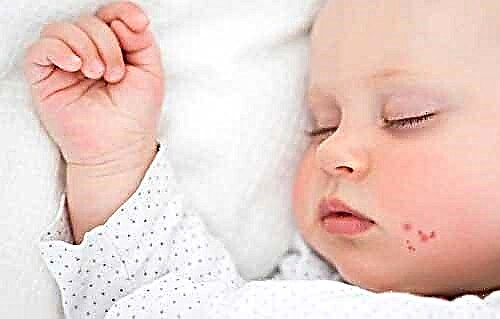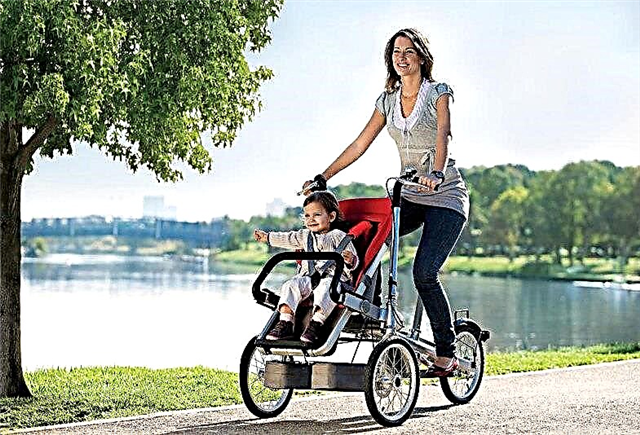Any problem related to the health of a newborn is a concern for parents. Mucus in a baby's stool often causes panic, especially if mom and dad are still completely inexperienced. However, first you should correctly assess the circumstances that have arisen in order to determine the cause of the unpleasant symptom. To do this, you need to know what is the reason for an immediate visit to the doctor, and what is a natural physiological process, why such symptoms occur, how normal feces should look like in a child.

Stool problems in a baby are often a cause of concern for parents.
Causes
The following factors can provoke the problem for both the guys who are on GV and the artificial ones:
- Introduction of complementary foods. Often, diarrhea and mucus in the stool is explained by the introduction of new foods into the diet, for example, vegetable puree. To reduce the manifestation of a negative reaction, it is worth abandoning the problem product for a while or reducing its share in the diet;
- Diseases of the digestive system. In such cases, it is necessary to analyze the intestinal microflora;
- The natural formation of mucus in newborns is explained by transient dysbiosis. No treatment is required here;
- Diseases of the respiratory system (very rare). For example, with a runny nose, some of the mucous secretions that form in the nose are swallowed and then enters the feces.
- Taking certain medications (most often these are drugs for bloating, such as Espumisan, Bobotik);
- Gluten deficiency.
Interesting. At birth, the gastrointestinal tract of infants is sterile. Soon, the baby begins to drink breast milk, then various microorganisms enter his intestines. In the first month of life, a certain microflora with a predominance of lacto and bifidobacteria should be formed. During the period when there is a "fight" between beneficial and pathogenic microorganisms, the child has a transitional stool. A greenish color of feces and the presence of mucus in it are not signs of illness.
Mucus in the feces of an artificial
A stool with mucus in a month-old infant who is bottle-fed most often indicates inappropriate nutrition. The kid, most likely, cannot digest the selected product normally for the following reasons:
- allergic reaction;
- any component that is part of the mixture is poorly digested;
- a sharp transition to a new type of food (from GW to IV) or a new mixture.
On a note. Often there is a cumulative effect: in the first weeks there are no visible negative signs, but then it becomes more difficult for the body to assimilate an unsuitable product, then it is simply impossible not to notice the problem.
Mucus in the feces with hepatitis B
Mucus in the feces of a breastfed baby can be caused by:
- Mother's milk is not sterile. A special analysis helps to establish this fact. In this case, feeding is usually not interrupted, and the mother and baby are prescribed a course of therapy.
- Lactase deficiency.
- The diet of the mother. Mucus in this case is a sign of intolerance to certain foods by the child's body. The baby may have an allergic reaction to one or another component (most often it is sweet, fatty, fried, flour). If the normalization of the diet has not given positive results, a blood test for the presence of allergens (MAST test) is recommended. Finding out which food triggered a similar reaction in an infant will be easy with a food diary.

The appearance of mucus in the feces in babies may be associated with improper nutrition of the nursing mother
Signs of dysbiosis
This is the most common cause of stool problems in newborn babies. This condition occurs when pathogenic bacteria (staphylococci, clostridia, etc.) begin to predominate in the microflora.
A mild form of dysbiosis is characterized by the following signs:
- Constipation;
- Flatulence;
- Colic;
- Mucus in the stool.
In advanced situations, the following are observed:
- Diarrhea;
- Lumps of curdled milk in the feces;
- A lot of mucus;
- The presence of streaks of blood in the stool;
- In rare cases, mucus is pink or red (indicates damage to the walls of the digestive tract).
Dysbacteriosis requires complex long-term treatment. The first stage is the sanitation of the baby's intestines, the second is the restoration of microflora.
Important! To prevent recurrence, it is necessary to provide the baby with proper feeding and careful care.

Colic, stool disturbance and mucus in the stool may indicate dysbiosis
Enzymatic deficiency and immaturity of the gastrointestinal tract
A newly born infant is not yet able to assimilate food in the same way as adults. A child's intestines are underdeveloped and do not have all the necessary enzymes to digest food. That is why a certain amount of mucus can be observed in the baby's feces. This phenomenon is natural physiological in nature, so parents should not worry. During this period, you need to be more careful with the introduction of complementary foods and carefully monitor the condition and reactions of the child's body.
Council. If the situation does not improve or, on the contrary, gets worse, it is better not to rush into the introduction of new products into the baby's diet.
Lactase deficiency
The enzyme lactase makes possible the fermentation of lactose contained in milk. In certain cases, babies have a congenital deficiency of this enzyme. Thus, milk cannot be normally absorbed by the body; when the product enters the intestine, fermentation processes begin. As a result, the child develops symptoms such as:
- Stomach ache;
- Flatulence;
- Loose stools;
- The presence of lumps of milk and a small amount of mucus in the feces.
A test for the content of carbohydrates in the stool allows an accurate diagnosis. Therapeutic therapy is reduced to a special diet that completely excludes dairy products. A child on HB is prescribed a course of taking drugs containing lactase. Artists select a mixture that does not contain lactose.
Acute intestinal infections
Mucus in feces in newborns often becomes a sign of a viral or bacterial intestinal infection. The most common diseases of this kind are:
- Intestinal flu;
- Dysentery;
- Salmonellosis.
With these and other similar pathologies, the elements of mucus in the feces indicate inflammatory processes in the intestines. To exclude dysbiosis and establish the presence (or absence) of a bacterial or viral infection, it is necessary to conduct a special analysis by seeding feces.
Recommendation. Babies under one year old who have noticeable changes in the stool should be shown to an infectious disease specialist. If the doctor insists on hospitalization, it is better to agree to eliminate the risk of serious consequences.

If you suspect dysbiosis or infection, you need to donate feces for analysis
What to do for parents
If parents notice mucus in the stool in the baby, it is recommended to visit a pediatrician. A specialist will help determine the cause and advise a suitable solution. In most cases, parents are quite capable of dealing with this problem:
- Change the mother's diet if she is breastfeeding (avoid starchy foods, fried, smoked, spicy, sweet).
- If the child is bottle-fed, then choose the right formula for him.
- Do not rush to introduce complementary foods.
- After the above measures have been taken, observe the child's condition for several days.
- If the mucus was clear rather than white, the parent's actions can be effective and the problem will go away. However, in any case, it is recommended to visit a pediatrician for examination and consultation.
Important! You should not resort to self-treatment with medications and other means without consulting a pediatrician.
When to see a doctor
In most of these cases, parents need not worry. The appearance of mucus in the feces of an infant indicates a disruption of the digestive tract. Deviations can be caused by excessive stress on the children's intestines.
The presence of white mucus in the stool should alert parents. In this situation, a visit to the doctor is required. The doctor can determine the following reasons:
- White mucus may indicate inflammatory processes in the infant's digestive tract;
- Dysbacteriosis, developed as a result of taking antibiotics or other drugs;
- Allergy to one or another food product;
- Lactase deficiency;
- Helminths.
Note! You cannot do without a medical examination if the presence of white mucus in the feces is accompanied by frequent colic, sleep disturbances, restless behavior of the child, and constant crying.
If an infant has green, liquid foamy diarrhea with blood clots, urgent medical attention is needed.

Lactase deficiency often causes mucus in children's feces
If a one-year-old baby or an older child, in addition to mucus in the stool, has diarrhea and fever, you need to call an ambulance.
Yellow jelly-like mucus in the feces of a baby speaks of inflammatory processes. A similar shade is formed due to the large number of leukocytes and impurities of pus.
Parents in such cases should pay attention to the signs:
- Feces have a pungent putrid odor;
- The color of the stool is atypical for this child;
- Mucous heterogeneous stool in infants includes large fragments;
- Blood impurities are noticeable in children's poop;
- Much mucus.
Important! Dark, black, or reddish-brown mucus in the stool indicates internal damage. Urgent medical attention is required.
Taking medication
If it is not possible to visit a doctor immediately, the baby can be given Smek or probiotics. Mucus in the stool is not a pathology, but only indicates a specific problem associated with a malfunction of internal organs. Therefore, it is not the effect that needs to be eliminated, but its cause. Treatment can be as follows:
- If the baby is ill with bronchitis, acute respiratory viral infections, pneumonia, the doctor prescribes antiviral drugs.
- Dysbacteriosis is eliminated with antiseptics and probiotics.
- If intestinal infections occur, a course of antibiotics or antiviral drugs is prescribed.
- Antifungal agents are used to eliminate thrush.
- With intestinal inflammation, glucocorticoids, sulfalazines are prescribed.
- Erosions and ulcers are treated with healing, pain relievers.
- For pancreatitis, medications containing digestive enzymes are prescribed.
Important! In each case, the course of treatment is prescribed individually.
Doctor Komarovsky about intestinal infections
According to the well-known pediatrician, Evgeny Komarovsky, the appearance of mucus in the feces of an infant is a natural reaction of the body to the introduction of complementary foods, the addition of new products to the standard menu. The doctor does not recommend that parents worry too much about changes in the smell, color and consistency of the stool, since in the first months of life, the digestive system of the crumbs is only getting better. It is for this reason that symptoms may occur in the form of mucous discharge in the stool in a child.
On a note. In the first year of life, the main indicators of an infant's health are optimal weight gain, good sleep, and moderate activity. If the growth and development of the baby meet the listed standards, then the mucus in the child's stool should not bother the parents.
When suspicious situations arise, a reputable doctor recommends:
- Throw away your panic.
- Observe the baby carefully for 3-4 days.
- If the changes only affected the composition of children's stool, then nothing needs to be done. When the digestive system of the crumbs is working, the unpleasant symptom will disappear on its own.
- If the baby is not yet ready to take "adult" food and is breastfed, it is necessary to correct the mother's diet.
- Call an ambulance immediately if you find green, liquid foamy diarrhea mixed with blood clots.

Green, frothy stool that has a liquid consistency is a reason to see a doctor immediately
So, if the baby poops with mucus, but there is very little of it, and it rarely appears, then there are no serious reasons for concern. If an unpleasant symptom makes itself felt with each bowel movement, is accompanied by a sharp unpleasant odor and other negative manifestations (sleep disturbance, diarrhea, bloody blotches in the feces, frequent regurgitation), then we can talk about certain disorders in the work of the child's internal organs. In this case, a specialist consultation is required.



